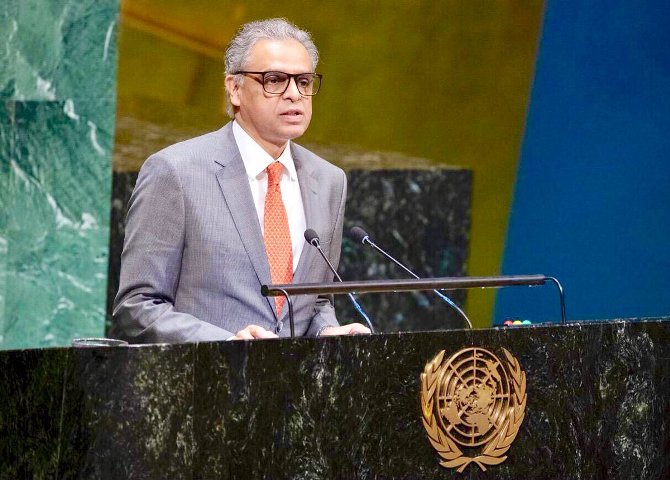Can't afford to delay Security Council reform: G4 at UN

Lamenting the very little progress achieved in the UN Security Council (UNSC) reform process, G4 members - Brazil, Germany, Japan and India - asserted that talk now needs to be followed with action and that naysayers cannot be allowed to cast a "dark shadow" over the process and hold back the overwhelming majority calling for reforms.
"At a time when old challenges to peace and security have become more intense and the variety of new threats are expanding, we cannot afford to delay the reform of the body charged with the maintenance of international peace and security," India's Permanent Representative to the UN Ambassador Syed Akbaruddin said at a plenary meeting on 'Question of Equitable Representation and Increase in the Membership of the Security Council'.
Delivering the joint G4 statement at the meeting Tuesday, Akbaruddin said while the emphasis on reform and change was a constant theme in the addresses during the high-level debate of the UN General Assembly (UNGA), "talk now needs to be followed with action to achieve credible progress" in the current session of the Assembly.
Calling for normalising the Inter-Governmental Negotiations (IGN) process, the G4 bloc said the IGN should operate under normal rules of procedure, as do all other UNGA processes. In the UNGA, work is done through give and take negotiations, focused on a document with the co-chairs or facilitators, acting as agents, for facilitating dialogue.
"In the General Assembly, all a naysayer can do is, at best, to cast a negative vote. What we have seen in the last couple of years in the IGN and its working methods does no credit to all of us. Naysayers cannot be allowed to cast a dark shadow over the entire membership and hold the overwhelming majority back," the G4 statement said, adding that some UN member states cannot hold the entire process hostage by bending the rules of negotiations.
"If we permit this, we stand the risk of breaking the process beyond repair," it said.
The G4 nations have been calling for early reform of the 15-nation Council, seeking the expansion of both the permanent and non-permanent categories of membership to enhance the Council's legitimacy, effectiveness and representativeness. A broad majority of member states of the UN, including the African group, CARICOM (Caribbean Community) countries, the Arab group and a vast number of individual states also support the reform process.
The joint statement further said that the desire for text-based negotiations is not a slogan but a necessity for a transparent and good faith negotiating process. "A text reflecting all positions and proposals from member states will be a mark of the credibility of the process going forward. If we fail, we must not hesitate in taking a relook at the process itself. We remain open to all options," it said.
The G4, while having a common position, are also respectful of different positions existing in this process, the statement said, adding that the four nations are committed to negotiating with all groups. "But for negotiations to be meaningful, it is crucial to list the various aspects of the different positions. Thus, it is crucial that we work on a text for negotiations," it said.
Akbaruddin said the current session marks the 10th round of the IGN process and yet there is very little progress to show, despite all the efforts from the member states through the these years. The G4 noted that next year, the presidency of the UNGA will be handed over to an official elected from Africa who will "usher us into the 75th year of this organisation".
"Taking the cue from success stories of the past session, we suggest that our discussions on Security Council reforms should begin at the earliest, and there should not be any artificial deadlines to end discussions prematurely" next year, it added.
President of the 73rd session of the UN General Assembly, Maria Fernanda Espinosa, has named Ambassador Lana Zaki Nusseibeh, Permanent Representative of UAE, and Ambassador Christian Braun, Permanent Representative of Luxembourg, as co-facilitators of the inter-governmental negotiations on UNSC reforms for this session.
(With inputs from agencies.)










